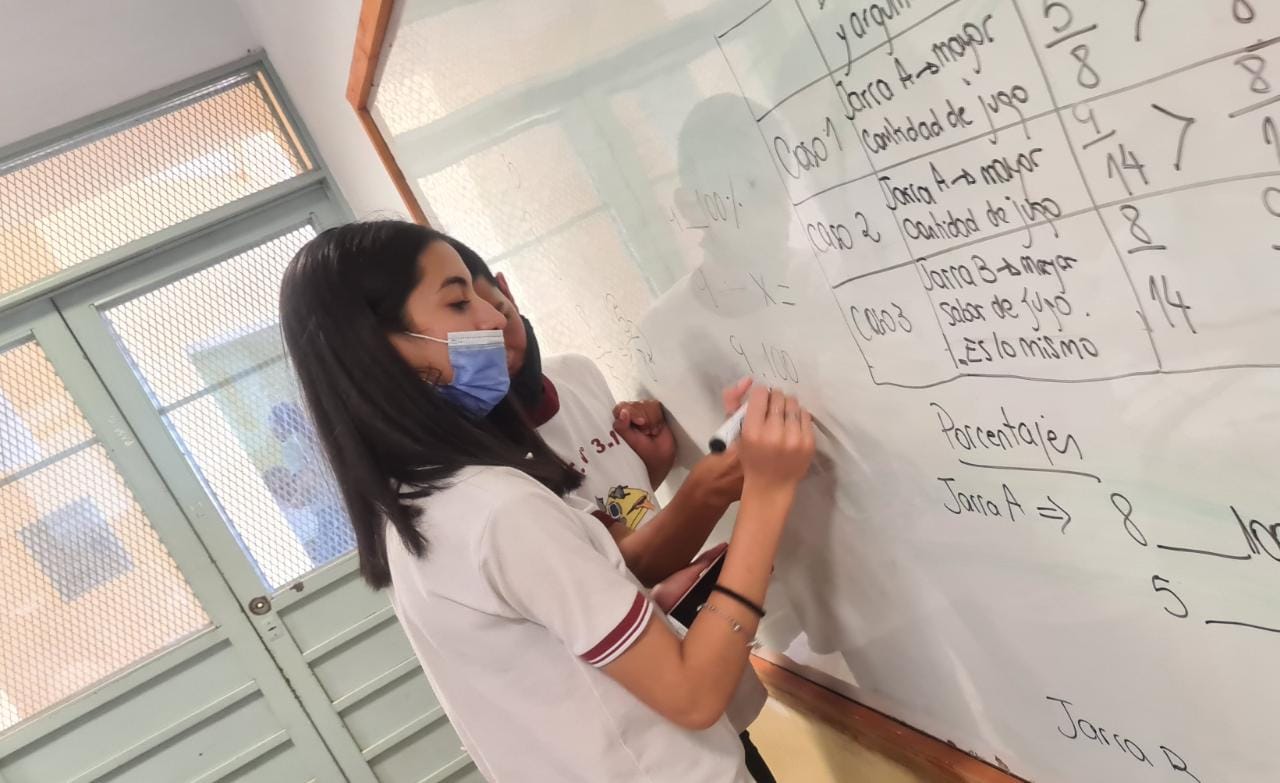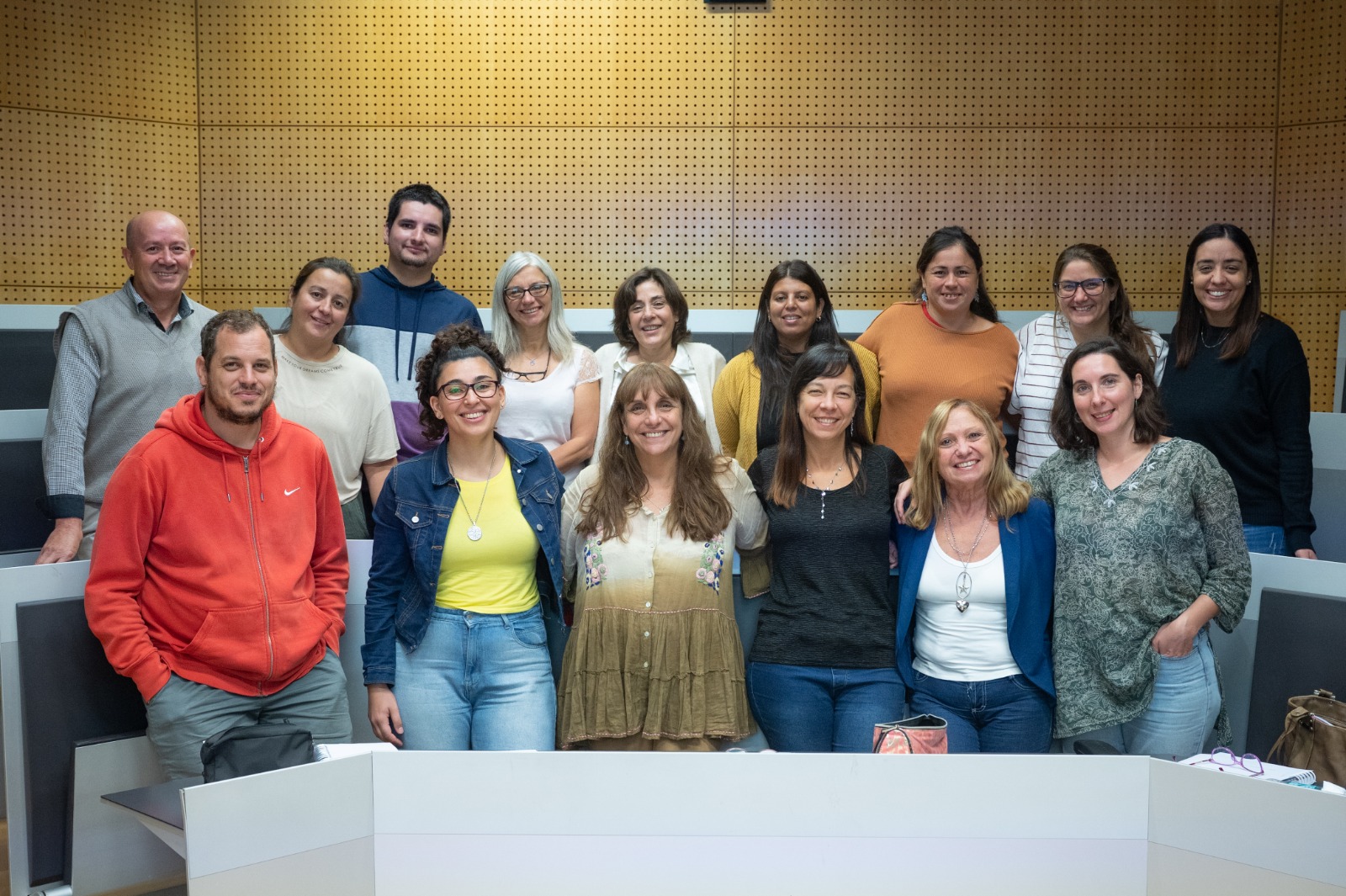Either you are within the group of people who know mathematics or you are not. What if we change the dichotomy? A thought to make you ponder: what would you have done in school if you could have expressed yourself as freely as in your everyday life?

For many people, "being good" at mathematics is related to knowing how to make calculations, knowing multiplication tables or formulas by heart, solving exercises and passing the subject. If you are good, "you are a genius"; if you are bad, "it is what happens to the majority of people". To be or not to be seems to be the question. Either you are within the group of people who know mathematics or you are not. What if we change the dichotomy?
Year after year, institutions deal with reports on the academic performance of students at all levels. Currently, in the post-pandemic era, the situation seems to be getting worse despite the surprising efforts to guarantee learning. Entire communities are wondering on a daily basis how to improve outcomes and learning mediation processes.
Promoting a taste for mathematics could be one way to achieve this. Learning brings pleasure, so the lack of understanding takes pleasure away. Just imagine being in a conversation in a language you don't understand, with no translation. It could be a fascinating conversation, but ultimately incomprehensible. The difference between that conversation and math is that math is certainly fascinating. One of the alternatives to contribute to their understanding and to cause pleasure is making people feel part of and builders of the knowledge that is discussed in a class. Working with socially shared practices that are associated with mathematical objects restores their functional meaning, their reason for being, their uses. It provides the opportunity to learn by doing mathematics, where the concepts are tools built to respond to the situations raised.
How do you split $5,000 of profit between two people who sold t-shirts? There will be those who answer $2,500 for each one. There will be those who say that this will depend on how many t-shirts each person sold, how great the effort of each one was, how much the investment was, and so on, various other relationships that can be established. Which one is correct? All are valid, since they all propose an amount to be distributed among the people. It will be essential to discuss the arguments that validate their answers.
Sometimes, the distance between what is learned at school and what a person's life demands in their daily lives is immense. When practice is the stage to verify learning, but, above all, the stage to learn, the didactic tools are transformed. This transition deserves a new relationship with school mathematics: from mathematical operability to the functionality of mathematical thinking.

Mathematics activity with teachers.
The issue is to promote the idea that knowing mathematics is related to situations that go beyond calculations. It has to do with thinking mathematically. It is known that everything related to thinking has a direct link with mental constructions and, in particular, the mathematician, considering the last stage of the cognitivist Piagetian position, is linked to abstraction, formal symbolism and generalization.
Analyzing it from the discipline of Educational Mathematics, Didactics of Mathematics or Mathematics Education, we can deepen the cognitivist idea and gain precision, to propose a way (and be careful not to say "the" way) to develop mathematical thinking. Thus, working on the transition from the experience of "what is" to "what could be" in the educational act at a mathematical level, enhances the transition between what is pragmatic and what is abstract and hypothetical. For this, it is proposed, among other things, to build and analyze mathematically correct arguments; analyze those that are not to understand the underlying thought (there should be explanations of why this is thought this or that way, related to the equivocal transition of the distributive property); validate the procedures, analyze their foundations and study what would happen if the proposition of a hypothesis with a certain conjecture raised is denied; in short, to problematize the school mathematics with which we work daily.
Currently, the actions promoted by Techint Group Community Relations link mathematical thinking with the lives of students and education professionals. This link does not only refer to a contextualization of the exercises or problems raised, but to deep dialogue about the mathematical strategies put into play and, thus, develop mathematical thinking, the one that each person possesses and should use in their daily lives. The center is not the mathematical object, but the practices that are related to it and the constructions that emerge. In particular, we address algebraic, stochastic, variational, proportional, and geometric thinking, visualization, and modeling.
We use the curricular topics of the different school years as an anchor, and in a transversal way we work with the development of mathematical thinking, mobilizing characteristic and particular elements of each one of them.
The teacher professional development actions are based on the problematization of school mathematics, questioning the use and the raison d'être of the curricular contents to promote the functionality of mathematics. It starts with reflection and is consolidated in action. It is a collective individual process that promotes an attitude of leadership and intellectual emancipation. The objective is, always, to bring our continuous transformation to the classroom.
Those who are protagonists of these processes say:
“I highlight the active and leading role that we teachers assume, the discussion and questioning about what is taught in school. The resolution of learning situations specifically designed to provoke a mathematical thinking and the analysis of these situations from their more general and visible, and more specific and almost transparent intentions”.
Education professional, Argentina.
“As a teacher, this strengthening was a break through from a practice that I had adapted for convenience and today is part of my teacher training... Whether or not I am teaching mathematics, I seek reflection on what I teach”.
Education professional, Mexico.
Sometimes, "being good at" does not have to do with "knowing more", but reflects on what we already know. So, before we learn the multiplication tables by heart, it would be convenient to put into play the comparison, the estimation, the grouping and the counting. Basically, beyond memorizing the 7 times table, the important thing is to know why 7 x 8 is 56... the essential thing is to know how to multiply. There is a group to which all people belong: that of thinking people. Perhaps this idea will help change the dichotomy. I could never learn the 7 times table, but over time I developed my mathematical thinking… and because of that, I feel I'm good at math!
#RobertoRocca #Education #GrupoTechint #TechintGroup #MathematicalThinking #Mathematics #Transformation
BIO
Daniela Reyes-Gasperini. Education professional. Specialist and adviser in Educational Mathematics for Grupo Techint. Mathematics Teacher – I.S.P. “Dr. Joaquín V. González”, Argentina, and Doctor of Science with a specialty in Educational Mathematics – Cinvestav-IPN, Mexico. Higher and postgraduate level professor. Specialist in teacher professional development and social construction of mathematical knowledge. Director of Empoderamiento Docente (Teacher Empowerment).
https://www.linkedin.com/in/daniela-reyes-gasperini-21b7a18b/a